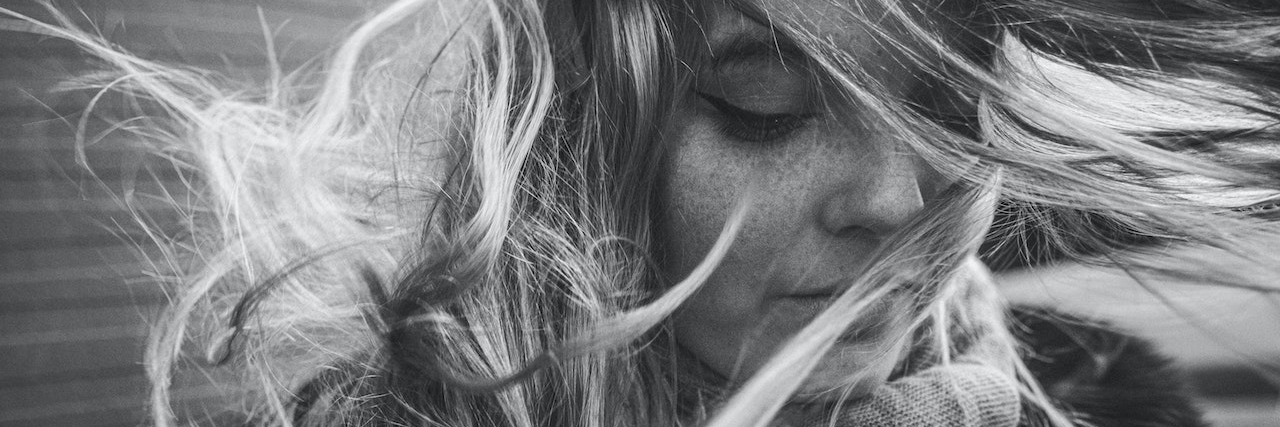I just finished Dr. Brené Brown’s latest book, “Atlas of the Heart,” where she tackles emotions and, with the help of her research team, breaks them down into definitions to help us understand how related ones are similar and where they differ slightly from one another.
One of the emotions she explains is pity.
She writes that “pity is the near enemy of compassion.” She borrows from Jack Kornfield, who writes that pity is when someone sees themselves “as different from ourselves. [that] It sets up a separation between ourselves and others, with a sense of distance and remoteness from the suffering of others that is affirming and gratifying to the self.”
It wasn’t until I read these words that I was finally able to put my finger on why it can be so difficult to self-disclose to others I have two suicides in my family.
I don’t want to be pitied. And I’ve seen that look before. I felt that, that panicked, awkward silence. Where the eyes get darty because people are so uncomfortable with what you had just told them. (Possible inner monologue: holy fuck, you have not, one but two suicides? In your immediate family? And even more in the extended family?)
Maybe they follow up with, ugh, I can’t imagine. (I’m glad you can’t. I’m glad this isn’t your reality too.)
Granted, I know these awkward moments are only part of what is happening in their minds. I know you can’t know someone’s intentions, their thoughts and motivations behind their actions.
Still, I can feel things. And I can observe the bodily responses that show physical discomfort. I notice them.
I am someone who has always tried to make others feel at ease in conversation. Some of this, indeed, is altruistic, but — if I am real — part of it is that I am intuitive, empathic, and extroverted, so socially awkward situations can make me physically cringe.
If I am honest with myself, I also know that again, as a child of an alcoholic, it is very important to me (as one of my therapists told me) to “appear that I have it all together.”
He was so right.
Maybe it’s a “keep fucking going” mindset? Trying to fake it until I make it? A survival mechanism to push through in order to get shit done? Probably. I did have to rally to continue doctoral studies during my dad’s suicide.
Still, the sobering and maddening truth is… I also don’t want to be associated with suicide. I have no choice. And, I know, I know, who would want that? But it is different when it is tied to your bloodline and your genes, there is more at stake. You are tied to, associated with, that.
I distinctly remember meeting my partner’s mother for the first time and she asked me about my family and the death of my brother. She eyed me. I saw it. I felt it.
And I don’t blame her. I too would be concerned if my child was dating someone with such a severe history of mental illness to result in two suicides in the immediate family.
But, I also can’t help it. I can’t change it. This is what I meant, in previous writings, where I discuss how their story doesn’t define me, though it certainly influences me. I’m too sensitive to pretend otherwise, as much as I would like to try to self-delude myself that way.
And I understand the truth is that suicide is hard to talk about because many people simply can’t understand the mindset or mental state that someone could be in in order to act to end their own life. (This is probably a good thing that it is so foreign to many humans.)
To this, I sympathize, I do. After all, I have had the embodied experience myself, been at the point of those thoughts (suicidal ideation or fantasizing about death, though no plans or attempt to do so).
Then, on another day, I may shake my head in amazement, wondering how I could have thought that, how could I have been in that frame of mind? And if someone who has herself felt that before can, on a different day, only scratch their head in deep amazement as to how I could have been there at that place, then how about those who have never had a major depressive episode?
It’s an extreme act of vulnerability to admit that I have two suicides in my immediate family.
It has taken me a long time to be able to admit this.
But, here is why I talk about it now:
As much as I wish we existed in an ideal world, where depression and suicidal ideation were more readily discussed, not as stigmatized ,or seen as weaknesses or moral failings, we are simply not there yet.
So, unless we start talking, this stigmatization will continue and suicides will only persist.
Nothing will change if we don’t start talking.
So, I’ll do my part.
To see more from Danielle, visit her Substack.
Photo by Andriyko Podilnyk on Unsplash

